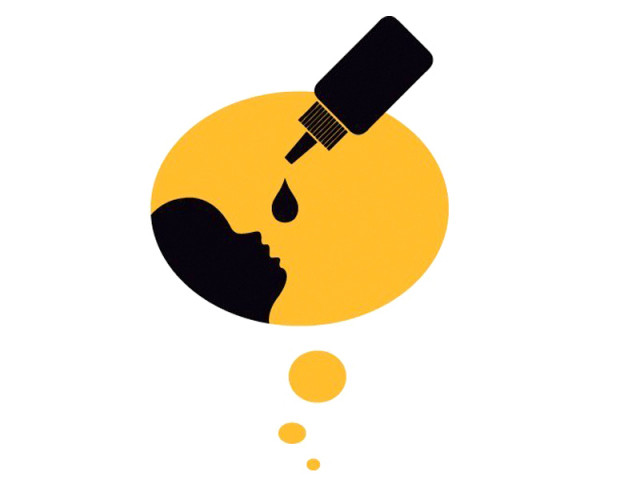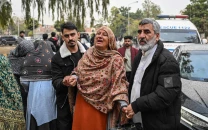Security situation a risk to anti-polio effort: WHO
Regional director praises decrease in polio cases but calls for govt to ensure safety.

Security situation a risk to anti-polio effort: WHO
The World Health Organisation (WHO) has expressed concern over the security situation being faced by its team taking part in the polio eradication campaign in Pakistan.
The concerns were expressed by the leading WHO official in the Eastern Mediterranean Region, Regional Director Dr Ala Alwan, during a meeting with President Asif Ali Zardari and Prime Minister Raja Pervaiz Ashraf.
Nevertheless, Dr Alwan praised the decrease in polio cases in the country, this year.
Attending the fourth meeting of the National Task Force on Polio Eradication in Pakistan, chaired by the prime minister, Dr Alwan said he was encouraged by the number of polio cases this year (29), compared to last year (71), according a statement issued by the WHO office on Wednesday.
However, Dr Alwan expressed serious concern over the unresolved challenges in the three major polio-virus transmission zones in Pakistan – the Federally Administered Tribal Areas (Fata), Quetta and its adjoining districts, and parts of Karachi.
He underscored that polio eradication could not be achieved in Pakistan until children in Khyber Agency, particularly in Bara, who have been inaccessible to the programme since 2009, were vaccinated.
“Pakistan has turned the corner through its Emergency Action Plan. Nevertheless, the deteriorating security situation in Karachi, impaired access in Khyber Agency and the recent ban in North and South Waziristan agencies constitute a substantial risk to all the efforts,” he said.
The regional director put special emphasis on reaching and inoculating high-risk and highly mobile groups. The common denominator linking the main transmission zones are communities that are under-served by health services: 73% of polio cases this year are from Fata and Khyber-Pakhtunkhwa.
Dr Alwan raised alarm over the situation in North and South Waziristan agencies where a locally announced ban on vaccination has put more than 200,000 children at immediate and escalating risk of polio. If not addressed, this ban will seriously jeopardise efforts of the Pakistani government and its partner organisations, he added.
Dr Alwan also drew attention to the recent incidents in Karachi injuring two WHO staff and killing one Pakistani polio team member and urged the government to take strong and decisive steps towards ensuring the safety of all polio workers.
The WHO regional directed noted that although remarkable efforts made by the provincial administration in Quetta and surrounding districts have resulted in gains, ongoing managerial weaknesses, particularly in Pishin, endanger those gains.
Later in the day, Dr Alwan met President Zardari to discuss the progress and challenges to the polio programme in Pakistan. Commending the financial contributions of the provincial governments, he urged the federal government to make additional substantial financial contributions, similar to those made by the governments of India and Nigeria.
Fresh polio cases detected in K-P
Two more cases of polio have been reported in Charsadda and Peshawar, raising the total number of cases in the country to 29.
“The cases have been reported in Charsadda and Peshawar but so far an official notification has not been issued and it will take a few hours to know the main reasons of contracting the virus,” Prime Minister Secretariat Polio Eradication Cell Spokesman Mazhar Nisar confirmed to The Express Tribune.
ADDITIONAL REPORTING BY Noorwali Shah in Peshawar
Published in The Express Tribune, August 9th, 2012.



















COMMENTS
Comments are moderated and generally will be posted if they are on-topic and not abusive.
For more information, please see our Comments FAQ